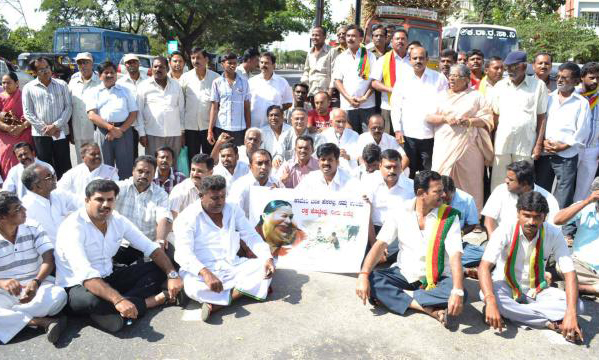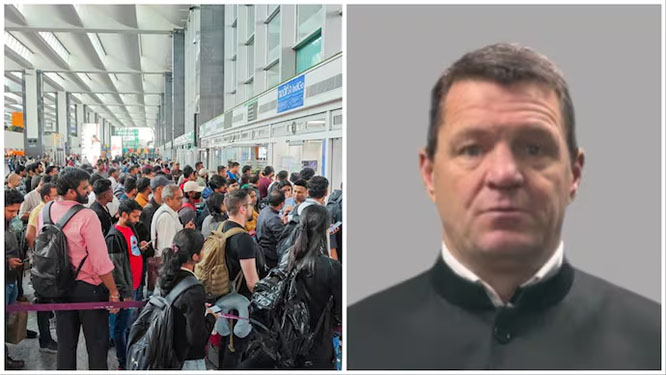
Erode (TN), December 7: Vehicles have stopped plying from Sathyamangalam near Erode to Mysore following demonstrations and hartal by some Kannada outfits in parts of Karnataka protesting the Supreme Court directive to release 10,000 cusecs of water to Tamil Nadu.
For the second consecutive day, more than 800 lorries, 300 vans and 200 other vehicles have been parked at Sathyamangalam, Bannari check-post and near Thimbam, police said.
Police are maintaining tight vigil on the Tamil Nadu-Karnataka border at Karapallam and Puzhinjure.
Because of non-operation of vehicles, traders and wholesale merchants dealing in various commodities claimed they had incurred a total loss of Rs. 5 crore in two days.
Wholesale flower vendors dispatching Jasmine and other flowers to Mysore and Chamrajnagar did not buy the flowers and take part in the sale at the Sathyamangalam private market here. Consequently, the price of jasmine has come down to Rs. 180 a kilogram from Rs. 600 a kilogram on Wednesday. It was selling at Rs. 1200 a kg on Sunday, trade sources said.
The apex court had on Wednesday in an interim order directed Karnataka to release 10,000 cusecs of Cauvery water per day to Tamil Nadu, and asked the Cauvery Monitoring Committee to hold its meeting to decide the amount of water required by the states.
There was a huge traffic jam at Gejjalagere in Karnataka’s Mandya district on Bangalore-Mysore Road on Thursday, as farmers blocked roads after hearing the Supreme Court order.
Last night, Karnataka began releasing Cauvery water to Tamil Nadu from the Krishna Raja Sagar Reservoir as per the apex court directive.
Meanwhile, the water level in the Mettur Reservoir, the lifeline of farmers in Cauvery delta districts in Tamil Nadu, this morning stood at 49.68 ft.
Inflow was 2316 cusecs while outflow 10,579 cusecs.







Comments
Add new comment